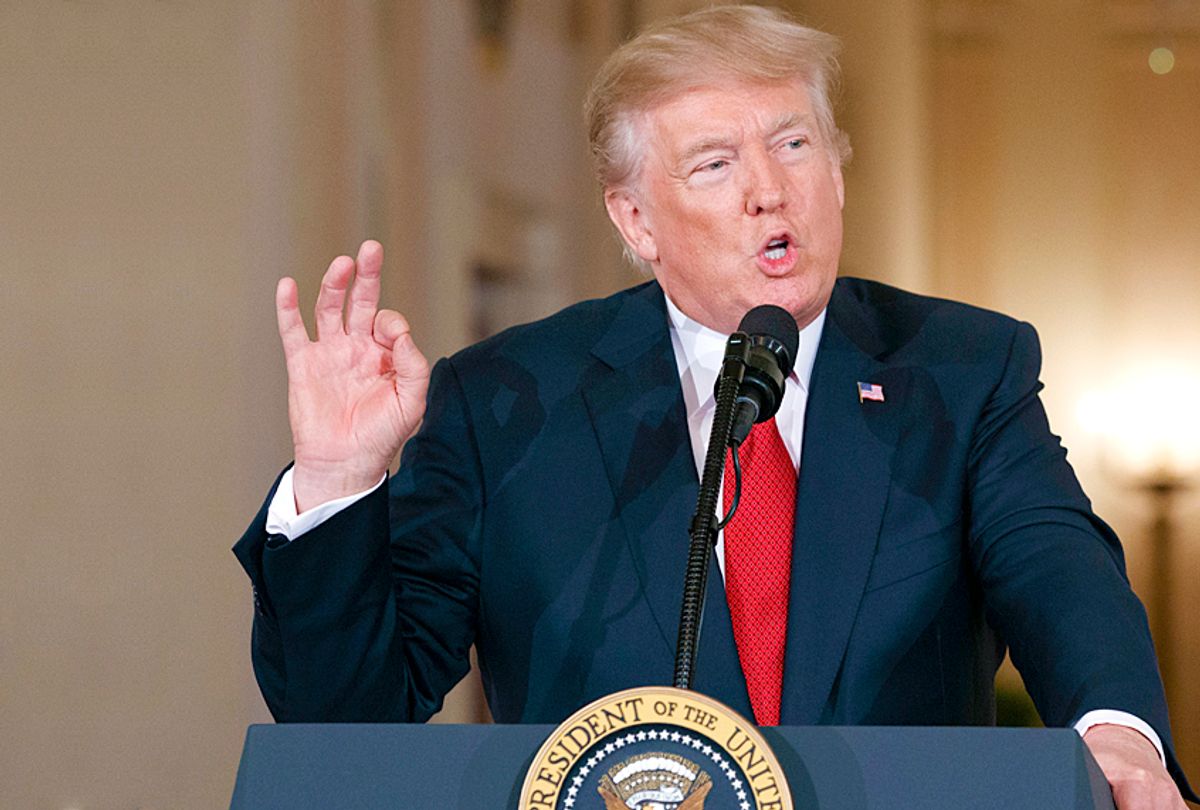 Denis MacShane is correct to criticize the U.S. pullout of UNESCO as unproductive.
Denis MacShane is correct to criticize the U.S. pullout of UNESCO as unproductive.
But to label Trump an “isolationist” who is taking the United States back to the 1920s is a misdiagnosis.
Given Trump’s manic instability (witness his tweets that can contradict each other several times in one day), it is not easy to pin down his ideological profile. But he is clearly no isolationist.
Trump’s internationalist profile
The only constant about Trump is that he always focuses on himself first. That is why it matters greatly that he has business interests in at least 144 companies in altogether 26 countries.
In his very own way, Trump is the personal embodiment of corporate multinationalism. How else to understand the fact that he brazenly continues to pursue his business interests from the White House?
His connections with Russia are already the subject of a simmering scandal. At his rallies, he plays to his political base with xenophobic rants. In the real world, he profits from importing goods (instead of buying American, which he is advocating for others) and employs cheap immigrant labor.
Trump goes Goldman
Another sign of his corporate internationalism is that, within the first few months, he appointed six alumni of Goldman Sachs to high-level positions in his administration.
This includes the Treasury Secretary, Under Secretary of State, his chief economist, as well as his Deputy National Security Adviser. His Secretary of State was Chairman and CEO of Exxon Mobil.
Militarization, not isolation
Trump is dismissive of the diplomatic and “soft power” global networking approaches employed by previous administrations. His first budget cuts State Department spending, but pours money into an already bloated military-industrial complex.
That is but one indication why militarization, not isolation, characterizes Trump’s foreign policy.
He has given the Pentagon and the CIA more power to make decisions on air strikes, assassinations and troop dispositions in the 172 countries and territories in which the United States has a military presence.
And he has surrounded himself with military men.Trump’s chief of staff, national security advisor and secretary of defense are all former generals. They made their careers dedicated to the global projection of U.S. power and influence.
Anti-insider rhetoric
Despite his populist bluster against “Washington insiders,” Trump’s policy quarrels with the Clinton/Obama era are tactical and personal.
His campaign for President rested on the claim that he personally would be better at defeating terrorists, negotiating trade deals, getting Europe and Japan to pay more of defense costs, supporting Israel, as well as pushing back China’s influence in Asia.
Isolationism: An honorable tradition
There is an honorable isolationist tradition in America that goes back to Jefferson’s dictum that America should seek “peace, commerce, and honest friendship with all nations, entangling alliances with none.” John Quincy Adams in 1821 famously warned his successors against roaming the world “seeking monsters to destroy.”
This is not what Donald Trump is about. He seeks monsters everywhere.
And he is certainly not leading the United States back to the 1920s. At that time, the United States had reduced its army to the size of Portugal’s and sponsored an international agreement to limit the building of warships by the major naval powers.
Lodge, the imperialist
A better historical parallel with Trump is Senator Henry Cabot Lodge. In 1919, he led the successful fight to scuttle U.S. membership in the League of Nations.
Pop history often misleadingly refers to Lodge as an isolationist. That is hard to square with the fact that he was a fervent believer in U.S. imperialism. Lodge rejected the League of Nations simply because he saw it as an obstacle to his vision of a global American empire.
Trump, the imperialist
In trying to understand Trump we need to make a sharp distinction between imperialism and isolationism.
During his presidential campaign, many voters were convinced that he would reduce America’s role as world policeman and concentrate on domestic affairs.
Now it is clear that he relishes the global stage. He has turned out to be a blustering egomaniac with an itchy finger on the nuclear button, demanding that the rest of the world submit to him.
His September speech before the General Assembly of the United Nations was a bully’s insistence that no one had the right to challenge America’s sovereign authority to impose its will on the internal affairs of other nations.
Conclusion
For these reasons, to consider him a throwback to 1920s American isolationism seriously understates the threat of the Trump presidency. The danger is not that Trump will retreat from the world, but that he will attack it.
If he were just an isolationist, we would all be safer.



Shares